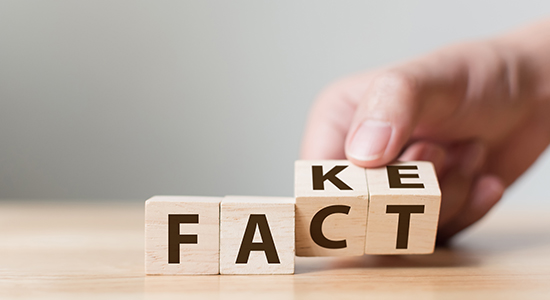
Question
I have a client who seems to be lying to me about some facts related to his legal claim. Do I have a duty to investigate whether these facts from the client are accurate?
Answer
It is always natural to question the information our clients provide to us. Doing so is a very important part of our duty of competency and duty of diligence: ensuring that we have all the facts to help with the representation, and that the facts are accurate. There is also tension when a lawyer thinks that a client may be hiding the truth or not disclosing all facts in order to better their position. This, of course, can be very challenging because the lawyer wants to believe what the client has said, but the lawyer also must be prepared with accurate facts so she can properly advocate for the client’s position.
Other than the duty of competence, which requires a lawyer be fully competent to represent her client (SCR 20:1.1), there is nothing in the Wisconsin Rules of Professional Conduct stating that a lawyer must believe the client or must always second guess the client in order to provide proper representation. There are requirements, however, under the Rules that a lawyer must be truthful when dealing with others and be truthful to the court, so the lawyer has to do everything possible to ensure that the facts being argued are accurate.
SCR 20:4.1 provides that a lawyer must be truthful when dealing with others and may not withhold material facts related to the representation. This rule specifically provides as follows:
SCR 20:4.1 Truthfulness in statements to others.(a) In the course of representing a client a lawyer shall not knowingly:
(1) make a false statement of a material fact or law to a 3rd person; or
(2) fail to disclose a material fact to a 3rd person when disclosure is necessary to avoid assisting a criminal or fraudulent act by a client, unless disclosure is prohibited by SCR 20:1.6.
(b) Notwithstanding par. (a), SCR 20:5.3 (c) (1), and SCR 20:8.4, a lawyer may advise or supervise others with respect to lawful investigative activities.
The rules also provide that a lawyer must be truthful when dealing with the court (or any type of tribunal) and that this duty supersedes all other duties the lawyer has, even the duty of confidentiality of information owed to a client. SCR 20:3.3 provides as follows:
The lawyer wants to believe what the client has said, but the lawyer also must be prepared with accurate facts so she can properly advocate for the client’s position.
SCR 20:3.3 Candor toward the tribunal.(a) A lawyer shall not knowingly:
(1) make a false statement of fact or law to a tribunal or fail to correct a false statement of material fact or law previously made to the tribunal by the lawyer;
(2) fail to disclose to the tribunal legal authority in the controlling jurisdiction known to the lawyer to be directly adverse to the position of the client and not disclosed by opposing counsel; or
(3) offer evidence that the lawyer knows to be false. If a lawyer, the lawyer’s client, or a witness called by the lawyer, has offered material evidence and the lawyer comes to know of its falsity, the lawyer shall take reasonable remedial measures, including, if necessary, disclosure to the tribunal. A lawyer may refuse to offer evidence, other than the testimony of a defendant in a criminal matter that the lawyer reasonably believes is false.
(b) A lawyer who represents a client in an adjudicative proceeding and who knows that a person intends to engage, is engaging, or has engaged in criminal or fraudulent conduct related to the proceeding shall take reasonable remedial measures, including, if necessary, disclosure to the tribunal.
(c) The duties stated in pars. (a) and (b) apply even if compliance requires disclosure of information otherwise protected by SCR 20:1.6.
(d) In an ex parte proceeding, a lawyer shall inform the tribunal of all material facts known to the lawyer that will enable the tribunal to make an informed decision, whether or not the facts are adverse.
Under this Rule, the lawyer must make sure that the information provided to the court is truthful and must correct a client’s misstatements or false statements if they are included as part of a court proceeding.
Lawyers must find a balance with all clients as to which information can be trusted and which information needs to be verified. Lawyers need to develop a “second sense” of the information from a client that needs to be checked in order to avoid embarrassment later when relying on that information.
Need Ethics Advice?
As a State Bar member, you have access to informal guidance and help in resolving questions regarding Wisconsin’s Rules of Professional Conduct for Attorneys.
Ethics Hotline: To informally discuss an ethics question, contact State Bar ethics counselors Timothy Pierce or Aviva Kaiser. They can be reached at (608) 229-2017 or (800) 254-9154, Monday through Friday, 9 a.m to 4 p.m.
